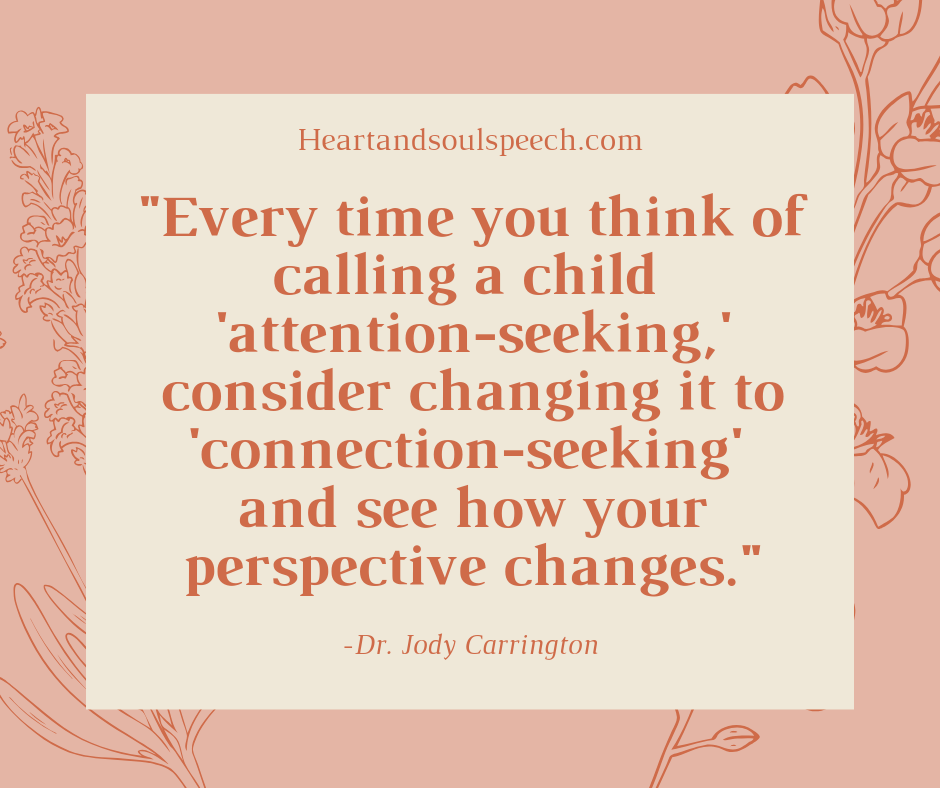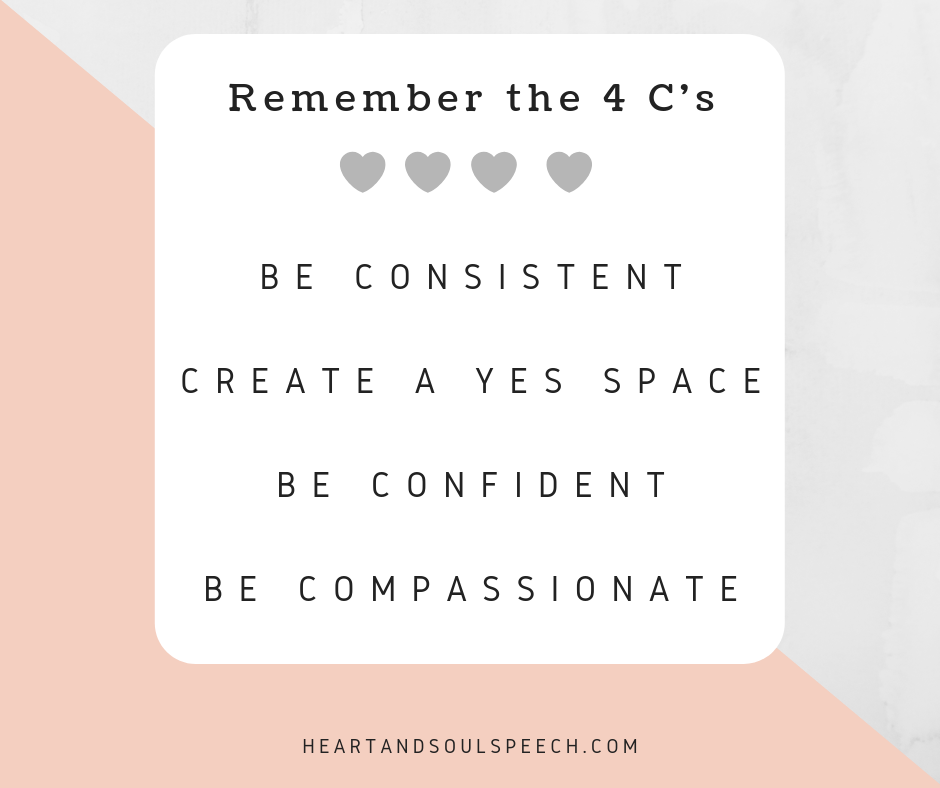There are many ways we describe it – meltdown, tantrum, misbehavior, noncompliant, resistant, defiant, out of control. The never-ending whining, power struggles, back talk, fighting, and screaming. All of it undesired behaviors we often see in children.
When our children act out, we can feel embarrassed, disappointed, inadequate, or even resentful. We may feel terrible when we respond by losing our cool and react impulsively. Of course, the worst times are when we have an audience and feel judged for our child’s misbehavior. It’s certainly frustrating.

The good news is there’s a different way! I invite you to begin your journey moving forward in changing your perspective of our children’s “misbehavior.” Your disappointment and resentment will become compassion and empathy, and our children will feel more safe and secure.
In our new perspective, we can view children’s behavior as communication, telling us what they need. Children’s behavior is purposeful. Often, a child is reaching out for help, but may not be able to tell us using words. Simply put, a child needs connection.
Children are learning about their world. They are exploring how their behavior and actions affect others, and how to manage those big feelings they feel. They are practicing new communication skills. When caregivers are able to connect with their children before correcting the behavior, the child’s behavior typically will be reflected in that.
Why do children misbehave?
-
They want more control.
Our children often don’t get much say in their daily life. We make a plan and they tag along. However, it’s our job as caregivers to respect their need for independence and exploration as well. This can be difficult because complete freedom is not always safe, appropriate, or available. However, making small changes to the way we present choices and involvement in our daily routines can help a child feel more in control.
-
Expectations are not consistent.
For young children who are still figuring out boundaries, it can be extremely confusing when expectations are not consistent. Misbehavior may simply be due to inconsistency in discipline and expectations. Perhaps Dad allows the television to be on sometimes before dinner, but Mom expects the child help set the table and do homework before TV.
-
Basic needs need to be met first.
I’ll be the first to admit I get “hangry” when I haven’t eaten in a while. My husband knows the signs and keeps crackers close by.
The same goes for our children. Are they hungry, tired, sick, need a break, need to move or explore, unable to process a new situation or feeling, or need more attention? I get it -it’s hard when you need to squeeze just one more errand before nap time. However, respecting their basic needs when planning our day will decrease unwanted behaviors.
-
They are still learning!
Often, our society leads us to believe unrealistic expectations of our young children. What looks like misbehavior is frequently developmentally appropriate for the child at that time. Children need to be able to climb, run, jump, and touch things in their environment to learn. They do not yet have the ability to self-regulate their little bodies all day long. They are still developing emotional competence to work through their feelings. Crying or fussing are unrefined responses to their emotions. They are still learning boundaries, rules, and our expectations.
-
Communicating is hard.
Young children are still mastering communication, language, and social skills. For children who do not have many words, they may be left with very primitive ways of communicating their wants/needs. For example, a child who is unable to request their favorite toy from a friend may push, bite, or hit to ask for it. They may not yet understand pointing or using a word is more appropriate. They may not have the understanding that their actions affect others.
How can we help children change their “misbehavior” through connection?
To decrease unwanted behaviors and connect with our children on a deeper level, remember the 4 C’s:

Be a consistent caregiver.
Learning is a process. Children build upon their social and emotional skills slowly through much practice. Caregivers can decrease confusion when our expectations are consistent. Set your boundaries in a kind and firm way, acknowledge what the child needs, and redirect into more appropriate behavior. For example, if your child is jumping on the couch, you can say “It looks like you want to jump, but we don’t jump on the couch. You can go outside to jump.”
Ask yourself:
- Are my expectations consistent across situations?
- Are my expectations developmentally appropriate for my child?
- Have I set a firm boundary, acknowledged my child’s needs, and given appropriate redirection?
Create a “yes” space.
Be realistic about our expectations and respectful of our child’s needs. Children who are shuffled from a morning at the library, lunch at the park, and the afternoon at the zoo are likely going to be exhausted and irritable. Caregivers can structure a child’s environment and routine to prevent and plan ahead for unwanted behaviors.
Ask yourself:
- Does my child have a safe and accessible place to freely play, explore, and rest at home?
- Is our daily routine somewhat predictable and respectful of my child’s need to recharge?
- Do I allow and encourage my child to express their emotions?
Be a confident caregiver.
Children can’t make confident decisions unless we model confidence in ours first. They are quick to push boundaries when they think there may be wiggle room. If you aren’t certain of your expectations, then they certainly aren’t. Children are more likely to whine, cry, protest, object, or keep pushing if there is room to negotiate.
Often we give our children choices when actually they don’t an option. For example, asking a child “Do you want to brush your teeth?” gives them the option to say “yes” or say “no.” When they say “no,” we likely tell them they have to anyways. When we change our directive to “It’s time to brush your teeth! Do you want to put on the toothpaste or me?” then the pushback is decreased.
Ask yourself:
- Am I being direct, simple, firm, and clear in my expectations?
- Am I willing to accept their response of “no” if I ask a “yes/no” question?
- Have I considered what I actually want my child to do before I ask?
Be a compassionate caregiver.
Our children are little humans. Sometimes it’s easy to forget that we wouldn’t treat another adult in the same way we treat children. Because children are still developing, there will still be moments of difficult behavior.
Even as adults, there are disagreements, push back, and even times where we need to step back and regulate our emotions. This is healthy and appropriate, and the same is true for our children. We want to help our children develop their emotional competence, which means we must allow our children to express those feelings and work through them.
Ask yourself:
- Do I try to observe, understand, and attend to my child’s needs?
- Do I let my child know I hear them, even if I don’t agree?
- Do I acknowledge my child is working through a tough time?
- Do I accept my child needs me to connect first before correcting their behavior?

One Response